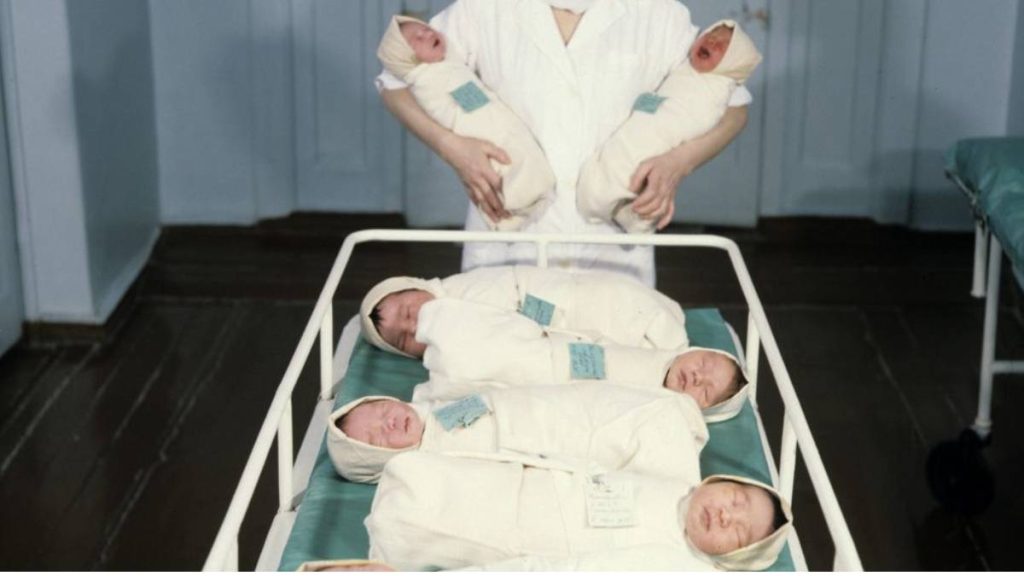A team of researchers from Middlebury College and Georgia Tech recently conducted a collaborative study.
The study was about the impact of the ban on abortion in some states of the US. Data made available to the team reveals that there was a growth in natality across the anti-abortion states.
The Supreme Court passed a ruling in 2022 nullifying a precedent that allowed Americans the legal basis for committing abortion. The Roe vs. Wade case of 1973 ended with a verdict that permitted abortion. However, with the Supreme Court overruling this permission in 2022, several states across the US enacted local laws that ban abortion.
The Middlebury-Georgia Tech study found that natality increased by an average of 2.3% across the anti-abortion states. This rise in percentile amounts to approximately 30,000 more babies.
Right after the Supreme Court overturned the pro-abortion judgment in 2022, 13 states immediately banned abortion within their borders. So, the data came from these 13 states. The states involved in the study are Alabama, Arkansas, Idaho, Kentucky, Louisiana, Mississippi, Missouri, Oklahoma, South Dakota, Tennessee, Texas, West Virginia, and Wisconsin.
ALSO READ: Kansas Judge Overturns Abortion Laws Amidst Abortion Ban Pandemic
Indiana also has an anti-abortion law. However, it was only enacted in June 2023. So, the researchers left out births from that state as its impact on the results would be mostly insignificant.
Furthermore, Caitlin Myers, one of the researchers, explained that the analytical methods used on the data are pretty complex. Besides, the study also compared birth predictions for 2023 and the actual figures.
Several factors make the data analysis a complex feat. One, there is no way the researchers could have identified pregnant women who kept their babies due to the abortion restrictions in their state. Likewise, it is possible that pregnant women in anti-abortion states accessed abortion via alternative methods.
POLL — Should Abortion Be Legal in Most Cases?
So, the researchers had to analyze the available data while considering such contextual nuances. For example, the level of enforcement in states with abortion bans varies. So, we cannot assume that the increase in natality directly implies the ban without any other overlapping factors.
To illustrate, Texas and Missouri significantly differ in their natality growth. Natality increased in Missouri by 0.4% and in Texas by 5.1%. The researchers attribute this disparity to a contextual factor as common as driving distance.
To explain, even before the ban, Missouri had just one certified clinic for abortions. So, after the abortion ban was passed into law, pregnant women in Missouri simply drove a few miles to Illinois for the procedure. Similarly, pro-abortion states, like Illinois, bordering anti-abortion states, saw a spike in the number of abortions.
ALSO READ: Texas Supreme Court Hears Case to Clarify State’s Abortion Ban
So, the ban did affect the number of abortions; however, disparities depend on several other factors. Access to mobility and poverty are some other contributory factors. For example, the increase in natality is more predominant among Black and Hispanic women. These lots may not have enough disposable income to spend on the fees of an abortion procedure.
Overall, the study indicates that abortions have decreased in states with the ban. However, women in anti-abortion states are mostly taking business to states with more lenient regulations.
You Might Also Like This:
NYC Mayor Eric Adams Could Lose Mayoral Election Over Bungled Migrant Crisis
Great News As Lake Mead Water Levels Rise After Years of Drought
Residents Slam Chicago Lawmakers for Blocking Sanctuary City Status Vote
Democrats Clash as Greg Abbott Buses Migrants to Sanctuary Cities
Melania Trump Makes Rare Appearance, Welcomes New Citizens at National Archives Ceremony
